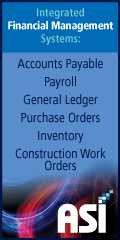Your GM and Board: Forging An Effective Relationship
 Print this article | Send to Colleague Print this article | Send to Colleague
By Rick Dacri, Dacri & Associates, LLC
Public power management is difficult and complex. To be successful, the relationship between the General Manager and the Board of Commissioners must be open and positive. Each must understand the other’s role and expectations. The General Manager’s job is to take care of everyone in the organization. His/her Board expects him/her to run and grow the business; carry out their mandates; recruit, retain and develop the internal talent; and prepare the organization for the future. It is the role of the Board to take care of their GM; not in a "kumbaya" sort of way, but more in a supportive manner. And this is where it can break down.
GMs, like any employee, want their basic needs met and when they are not, resentment occurs. They want a Board that can provide:
1. Clear expectations and accountability standards: After all, if you want her to drive the organization where you want, give her a map. Be clear, specific and direct.
2. Understand his needs and expectations: Boards need to take time to get to know what makes their GM tick. Know his personal and professional goals and objectives. Know his stressors and what can you do to help alleviate them.
3. Provide a timely performance review and know the market for executive compensation: Late reviews and salaries that fall below peers are two areas that cause the greatest resentment resulting in breakdowns in the relations and turnover of GMs. In a market with a shortage of good general management talent, this can be a catastrophe.
4. Set realistic performance goals: The strategic direction of the organization will only be achieved when this is done well. The genesis of all goals should be the organization’s strategic plan.
5. Provide ongoing feedback on performance: It’s lonely at the top. The GM needs input from the Board. An ongoing dialogue is essential.
6. Support the GM’s development: Grow your GM. The world is constantly changing and your GM must be able to keep up. A stagnant GM with last year’s ideas is not going to move your organization forward.
The role of the board is difficult, burdensome and complex. Members generally serve on a volunteer basis and occasionally without direct experience in public power. Their responsibilities are enormous and require critical decision making during their often infrequent board meetings. These include setting the organization’s strategic direction and ensuring that the GM is carrying out their mandates. Boards are taxed by the need to retain, motivate and when necessary, recruit top-notch GMs to run their organization. They know it is important to have:
1. Sufficient bench strength in the organization
2. A succession plan in case they lose their GM
3. Metrics to monitor the GM’s performance
What can the Board and the GM do to ensure that they maintain a strong, effective working relationship?
The Board should do the following:
• Develop a professional job description for the GM. Though job descriptions do not cover everything, they do provide a framework of what the Board expects of their GM.
• Develop an executive performance appraisal process. If they have never conducted one, get assistance in writing the appraisal and delivering it to the GM. This is key in ensuring accountability, setting direction, maintaining open communications and growing your GM.
• Develop annual goals and objectives for the GM. Keep your GM and organization on track and focused.
• Conduct a quarterly review with the GM on his progress toward achieving these goals and objectives. Quarterly reviews ensures that you are not moving off course, while at the same time, also provide an opportunity to make critical "mid-course" directions.
• Conduct an annual market analysis on the GM’s compensation to ensure market competitiveness. The market for public power executives is volatile. Without a clear understanding of it, you may make incorrect decisions, which can be costly.
• Implement incentives to move the organization forward. While not a traditional tool, more and more Boards are instituting incentives as a means of focusing the GM and rewarding exceptional performance.
• Support professional development. A well-educated GM is needed to lead your organization.
• Implement a GM Succession Plan and annually review for preparedness. Whether the loss of your GM is sudden or planned, he will eventually leave—everyone does. Having bench strength in your organization and a succession plan will ensure an orderly transition.
The Board’s responsibilities are significant and if they are unable to do this, they should bring in an outside expert to assist them. Organizational success depends on a strong relationship, with everyone operating optimally. Take care of your GM, so that your GM can take care of everything and everyone else.
Rick Dacri is a workforce expert, management consultant, and author of the book "Uncomplicating Management: Focus On Your Stars & Your Company Will Soar." Since 1995 his firm, Dacri & Associates, has helped NEPPA members improve individual and organizational performance. He can be reached at rick@dacri.com and www.dacri.com.
NEPPA does accept articles from our Affiliate Members who want to educate our members on their expertise. If you are thinking about submitting an article to the Newsline, please contact Courtney Crouse at ccrouse@neppa.org.
|





